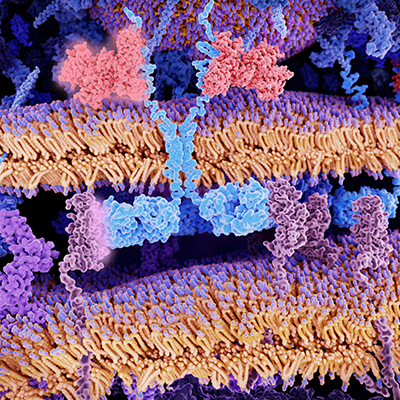January 26, 2022 -- Considering the broad range of the causes of cancer and the heavy impact on patients, advanced and innovative treatments are essential to fighting it. One technology being explored for this purpose is CAR T-cell therapy, because it trains the body's immune system to specifically target cancerous cells, according to Cell and Gene Therapy Business Outlook, a sister publication of ScienceBoard. Some healthcare institutions are collaborating with companies to develop such technologies, including Celularity, Lonza, and the Memorial Sloan Kettering Cancer Center (MSK).
As the second leading cause of death in the U.S., cancer poses significant challenges to the U.S. healthcare system. Cancer is a dysfunction in the cell division process that can occur in any part of the body, affecting any related organ systems and eventually spreading to the rest of the body.
Celularity and Imugene
Celularity is a clinical-stage biotechnology company that develops off-the-shelf, placental-derived cell therapies to address cancer as well as immunologic, infectious, and degenerative diseases. These cell therapies include unmodified NK cells, pluripotent stem cells, and CAR T cells.
As part of an endeavor to further explore the therapeutic potential of CAR T-cell therapies to treat solid tumors, Celularity has entered into an exclusive partnership with Imugene. Through this partnership, Celularity will combine its CyCART-19 cell therapy with Imugene's onCARlytics oncolytic virus technology. The onCARlytics technologoy is designed to prime tumor cells for destruction by increasing expression of CD19, which the CyCART-19 cell therapy can then target to eliminate cancer cells. Financial details of this collaboration were not disclosed.
Lonza and Leucid Bio
Lonza is a biotechnology company that enables treatments for the prevention of illness through scientific innovation and advanced manufacturing technologies. The company provides a wide range of services and products to the pharmaceutical and healthcare industry ranging from early phase development of active pharmaceutical ingredients to custom dosage forms.
Lonza and Leucid Bio are collaborating to advance the development of CAR T-cell therapies as a cancer treatment. Specifically, Lonza will utilize its Cocoon platform to optimize the automated manufacturing process for personalized CAR T-cell therapies, including Leucid Bio's LEU-011.
LEU-011 is a CAR T-cell therapy undergoing phase I/II clinical studies for the treatment of platinum-resistant ovarian cancer. This collaboration will aid in the development of a potential therapeutic option for this type of cancer, which is often difficult to treat. Financial details of the collaboration were not disclosed.
Memorial Sloan Kettering Cancer Center and Smart Immune
MSK is one of the world's oldest and largest private cancer centers as well as a National Cancer Institute-designated comprehensive cancer center. The institution has state-of-the-art scientific technologies for cancer treatment and hosts a range of educational programs to train future physicians and scientists in the advancement of cancer research and treatment development.
MSK has partnered with Smart Immune for CAR T-cell therapy development. Through this collaboration, MSK will work to expand Smart Immune's ProTcell pipeline with a first proof of concept in a mouse-to-mouse model. Smart Immune will lead the humanized model proof of concept. The CAR-ProTcell platform is designed to generate exhaustion-free CAR T cells to compensate for deficits in the treatment of hematological and solid cancers. Financial details of the collaboration were not disclosed.
The market for cell therapies is looking positive, and technologies like CAR T-cell therapy continue to innovate. Celularity, Lonza, and MSK are some of the institutions that have taken an active role in expanding these technologies through a series of strategic collaborations.
Partnerships like these are important in the fight against a disease as aggressive and prevalent as cancer. If such collaborations continue alongside the development of new technologies, effective treatments against cancers can become a tangible reality.
To stay up to date on the latest business happenings in the cell and gene therapy industry, check out Cell & Gene Therapy Business Outlook today!
Copyright © 2022 scienceboard.net










